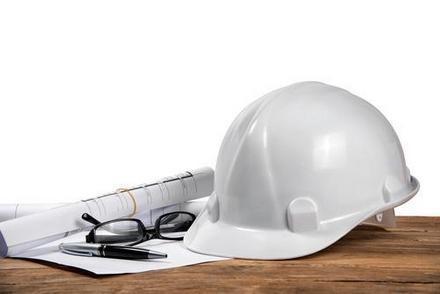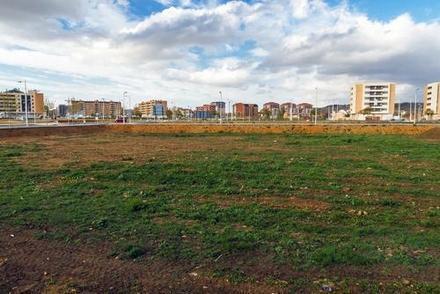Naperville, IL 60563
Recent Blog Posts
Condominium Owners Have Limited Protection Against Their HOA Board
 When condominium owners purchase a unit and pay their HOA dues, they rightfully expect that the Association will hold up their end of the contract. Unfortunately, this is not always the case. Even more concerning is that condo owners often have the deck stacked against them when it comes to resolving civil disputes with an HOA. For this reason, it is important that owners know and understand their rights, limitations, and most plausible course of action when an issue arises.
When condominium owners purchase a unit and pay their HOA dues, they rightfully expect that the Association will hold up their end of the contract. Unfortunately, this is not always the case. Even more concerning is that condo owners often have the deck stacked against them when it comes to resolving civil disputes with an HOA. For this reason, it is important that owners know and understand their rights, limitations, and most plausible course of action when an issue arises.
Withholding HOA Dues to Force Association Compliance
Seven years ago, an Illinois woman entered a civil suit with her HOA board. She wanted to sell her condominium, but the HOA allegedly refused to repair a leak that was causing damage to her property. She began to withhold her dues in hopes of forcing compliance, but it all ended up backfiring. Not only did she fail to win her case, she was forced to pay her own legal fees, her Association's legal fees, and the past due HOA fees. She also ended up making the repairs herself.
Smaller Banks Are Shying Away from Commercial Real Estate Loans
 The development of commercial real estate can be highly beneficial for the economic growth of Illinois. Unfortunately, the increased scrutiny on loans may be creating challenges for those searching for project funding. This is especially true when it comes to smaller financial institutions. Why is this happening, and what can be done about it? The following information explains further.
The development of commercial real estate can be highly beneficial for the economic growth of Illinois. Unfortunately, the increased scrutiny on loans may be creating challenges for those searching for project funding. This is especially true when it comes to smaller financial institutions. Why is this happening, and what can be done about it? The following information explains further.
Small Banks and Commercial Real Estate
After the recession and the bank bailouts, regulators started cracking down on financial institutions. Warned about their generally lax lending standards and willingness to approve funding on deals that are considered especially risky – such as construction and redevelopment projects, which do not immediately generate income – small banks started to shy away from development and commercial real estate projects. Some have even resorted to selling off some of their loans to get out from underneath the microscopes of regulators. Unfortunately, that has limited the options for land developers and other commercial real estate buyers.
Analysis of Land Use Concerns Throughout Illinois Provides Valuable Insight for Developers
 While land developers often have the best interests of their community in mind, they may not always immediately understand the concerns of city, county, and state officials. This can be problematic for those hoping to embark on a land development project since these agencies are often in charge of determining whether or not a project can or should proceed. Thankfully, a recent analysis on the major concerns of both metropolitan and nonmetropolitan officials helps provide some valuable insight.
While land developers often have the best interests of their community in mind, they may not always immediately understand the concerns of city, county, and state officials. This can be problematic for those hoping to embark on a land development project since these agencies are often in charge of determining whether or not a project can or should proceed. Thankfully, a recent analysis on the major concerns of both metropolitan and nonmetropolitan officials helps provide some valuable insight.
Reframe Your Thinking
Before fully delving into the concerns of local officials, it is important to understand the real reasons behind them. It is not that the regulatory boards and agencies simply want to make things difficult, and it is certainly not that they want to universally restrict growth of their cities and towns. In fact, growth can and should be a positive thing. Yet, as the human population grows, more emphasis is being placed on the health and safety of people. Further, the depletion of resources, natural habitats, diminishing animal population, and growing concern over other environmental issues has become a worldwide concern – one that everyone needs to address. Officials attempt to do this through regulation.
Protecting Your Commercial Real Estate Property
 Commercial real estate owners and investors take a great deal of risk when they assume ownership of a property. That risk is even further heightened when they rent out their property to tenants. Flood, fire, property damage, and unpaid rent are just a few of the common issues that you may face. Thankfully, there are ways to protect yourself from financial loss. The following information explains further.
Commercial real estate owners and investors take a great deal of risk when they assume ownership of a property. That risk is even further heightened when they rent out their property to tenants. Flood, fire, property damage, and unpaid rent are just a few of the common issues that you may face. Thankfully, there are ways to protect yourself from financial loss. The following information explains further.
Natural and Unpreventable Disaster
Lightning, flood, fire, and other natural or unpreventable disasters can cause significant loss to your property. Further, the tenant may be released from any liability in such instances. There are exceptions, of course. For example, if the tenant intentionally set fire to your property, then you may be able to hold them responsible for any damages incurred. Yet, even this is not a fail-safe way to ensure you receive compensation for your losses. As such, every landlord should carry the most comprehensive real estate insurance plan possible. Some policies may even be able to provide you protection, should a tenant injure themselves on your property that you might have otherwise been held liable for.
Plat Approval Process for Subdivisions within Will County
 Building a subdivision in an unincorporated area of Will County is an onerous process, full of complex laws, requirements, and regulations. The plat approval process is so strict, in fact, that even the smallest misstep could place the land developer at risk for costly setbacks or, in the worst of situations, a complete project failure. The following information on the Will County plat approval process can help you avoid risks that could place your land development project in jeopardy.
Building a subdivision in an unincorporated area of Will County is an onerous process, full of complex laws, requirements, and regulations. The plat approval process is so strict, in fact, that even the smallest misstep could place the land developer at risk for costly setbacks or, in the worst of situations, a complete project failure. The following information on the Will County plat approval process can help you avoid risks that could place your land development project in jeopardy.
An Overview of the Will County Plat Approval Process
All building and land development projects within the unincorporated areas of Will County are subject to certain requirements and restrictions, but subdivisions are one of the most strictly regulated. This is because they have the propensity to cause severe harm to the environment, wildlife, and community. Yet, they also have the ability to provide housing to the community, sometimes at a more affordable rate than what families may be find within the city. This is why the plat approval process exists – it is designed to balance need with nature. It also reduces the risk of unsafe and unsanitary living conditions.
An Overview of the DuPage County Plat Approval Process
 With nearly 700,000 jobs and an ever-increasing population, DuPage County is a prime location for land development. Businesses, subdivisions, and new homes are all a part of that development, and they are further proof of a thriving community. Unfortunately, there are many land development projects that stall out or are abandoned completely. More often than not, it is due to a poor execution of the plat development process (and/or a loss of funds because of poor execution). Do not let this happen to your project. Learn what you need to know about plat approval and land development in DuPage County.
With nearly 700,000 jobs and an ever-increasing population, DuPage County is a prime location for land development. Businesses, subdivisions, and new homes are all a part of that development, and they are further proof of a thriving community. Unfortunately, there are many land development projects that stall out or are abandoned completely. More often than not, it is due to a poor execution of the plat development process (and/or a loss of funds because of poor execution). Do not let this happen to your project. Learn what you need to know about plat approval and land development in DuPage County.
Who Needs Plat Approval? While nearly all new construction in unincorporated areas will need some form of approval (i.e. building permits, building plan approval, etc.), not all need to pursue plat approval. This complex process is designated mostly for subdivisions, including those to be built in or near city limits and those in unincorporated areas of DuPage County. Schools and other government buildings are also subject to limitations, as are any improvements to existing subdivisions or communities. Further, there may be additional structures or developments that need specific approval. If you are uncertain if your development project needs plat approval, contact an experienced real estate attorney for guidance.
Understanding the Basics of Commercial Real Estate Evictions in Illinois
 Most commercial tenant-landlord relationships are fairly uneventful. However, there are circumstances in which a landlord must evict their commercial tenant. Generally due to a breach of contract or failure to pay rent in a timely manner, this process can be legally complex. Whatever side you fall on – landlord or tenant – it is important to know how commercial real estate evictions in Illinois work, and how an experienced commercial real estate attorney can help you with the process.
Most commercial tenant-landlord relationships are fairly uneventful. However, there are circumstances in which a landlord must evict their commercial tenant. Generally due to a breach of contract or failure to pay rent in a timely manner, this process can be legally complex. Whatever side you fall on – landlord or tenant – it is important to know how commercial real estate evictions in Illinois work, and how an experienced commercial real estate attorney can help you with the process.
Commercial Evictions Are Governed by Law
When tenants and landlords enter into a commercial rental agreement, they typically do so through a legal contract. Contained within are certain guidelines, agreements, and expectations for property use, rental payments, property maintenance, and any other pertinent details. If a tenant violates any part of this contract, they become subject to an eviction. Landlords must pursue this process in accordance with the law. Specifically, commercial evictions are governed by the Forcible Entry and Detainer Act (735 ILCS 5/9-101), which outlines a timeline and procedure for evicting commercial tenants.
Strategies That Could Drastically Improve the Outcome of Your Commercial Project
 Every investor has been there: they find that “perfect location,” a place where they know all of their dreams and ideas will flourish. It is ripe with promise and possibility and may even have nearby businesses, retail chains, communities, or other appealing attractions nearby. Then they notice the sparse development. An inexperienced investor might wonder why, but you immediately know the answer: zoning problems. Thankfully, you also know that there are ways to win the battle. The following strategies can help you along the way and may even improve the outcome of your commercial land development project.
Every investor has been there: they find that “perfect location,” a place where they know all of their dreams and ideas will flourish. It is ripe with promise and possibility and may even have nearby businesses, retail chains, communities, or other appealing attractions nearby. Then they notice the sparse development. An inexperienced investor might wonder why, but you immediately know the answer: zoning problems. Thankfully, you also know that there are ways to win the battle. The following strategies can help you along the way and may even improve the outcome of your commercial land development project.
Know the Why Behind Zoning Restrictions
Restrictions on zoning, expansion, and land use can be in place for any number of reasons. Maybe the city or county intentionally restricted it to preserve an endangered species. Alternatively, they may know it is a prime location and are simply trying to retain a position of power while they wait for the “right” project to come along. However, the most likely scenario is that the land is restricted through outdated zoning laws, ones that could be challenged or changed with the right approach. Whatever the case, get to know why certain zoning restrictions are in place. This can help you determine whether or not the fight is truly worth the effort and investment.
Building on Vacant Land: Zoning Regulations and Land Use
 When you look at the vacant lot of land you have purchased, you probably see possibilities and promise for the future. What you might not are the zoning and land use ordinances that you will face along the way. Know how zoning regulation issues may hinder the development of your project and how you can best avoid them.
When you look at the vacant lot of land you have purchased, you probably see possibilities and promise for the future. What you might not are the zoning and land use ordinances that you will face along the way. Know how zoning regulation issues may hinder the development of your project and how you can best avoid them.
How Does Zoning Affect Your Project?
Governed by local laws, zoning ordinances restrict an area's land of use to a predetermined use. In theory, these restrictions are made to organize land and improve its efficiency and livability. For example, it would prohibit the construction of a power plant within a residential zone, where residents may become annoyed or even sick because of the noise and pollution.
Zoning Designations in Illinois
Each city and/or county determines their own zoning designations. However, most zoning designations will fall under one or more of the following categories:
Understanding the Plat Approval Process in Naperville, Illinois
 Land development is one of the most complex real estate processes. It requires knowledge of zoning ordinances and regulations, due diligence, organization, and careful planning. It also requires that the landowner or developer seek site plan and plat approval. The following will help you better understand the approval process and provide you with key information on how you can smooth the path ahead.
Land development is one of the most complex real estate processes. It requires knowledge of zoning ordinances and regulations, due diligence, organization, and careful planning. It also requires that the landowner or developer seek site plan and plat approval. The following will help you better understand the approval process and provide you with key information on how you can smooth the path ahead.
Who Needs a Site Plan and Plat Approval?
Certain plat developments must seek prior approval through the City of Naperville Development Review Team (DRT). This includes subdivisions, planned unit developments, condominiums, dedication of right-of-way, easements, annexations, and vacation public right-of-ways. However, there may be other developments that must seek approval. Since each project is unique, and because zoning violations can be costly in terms of both time and money, it is important to contact an experienced real estate attorney prior to starting your land development project.




